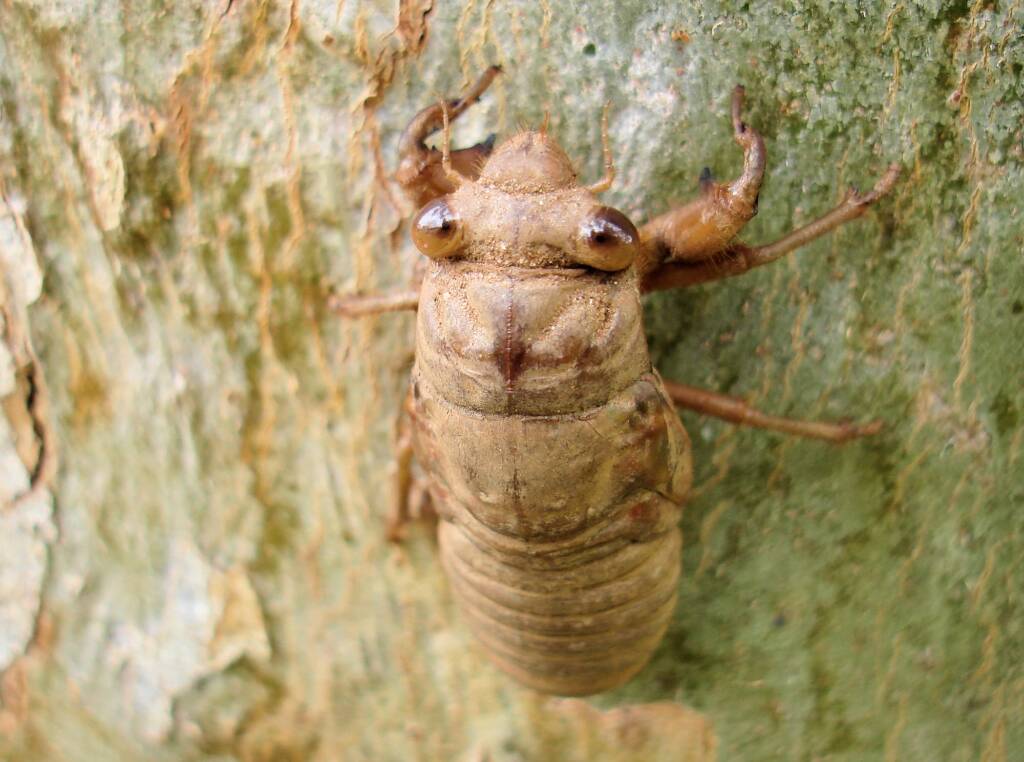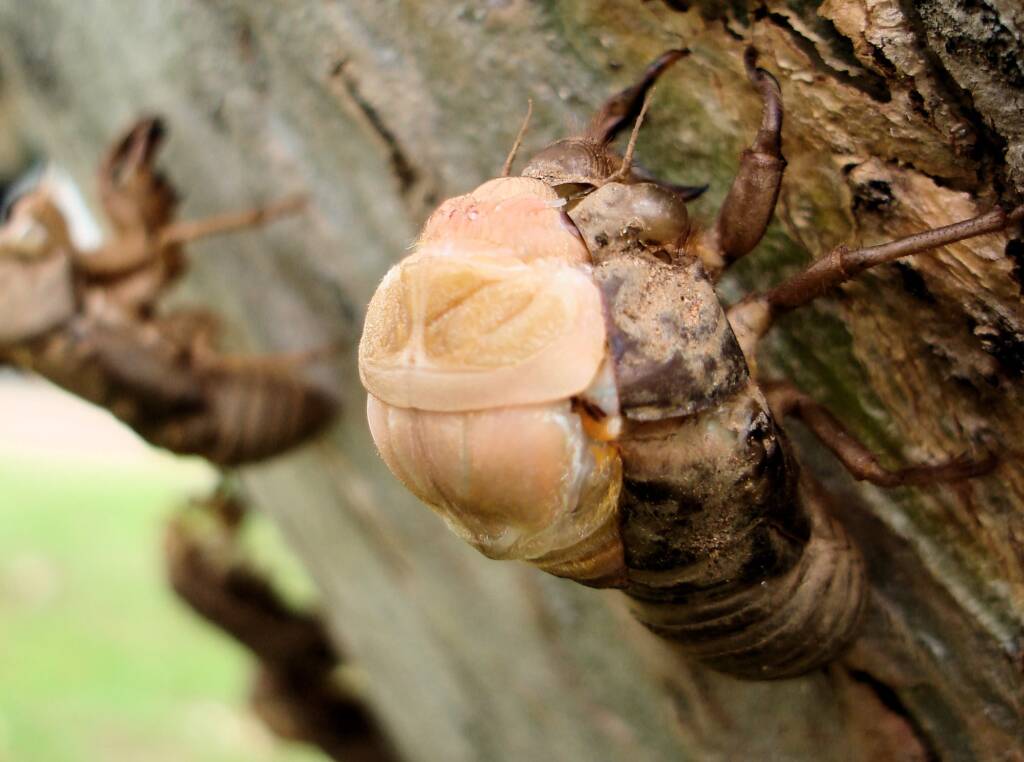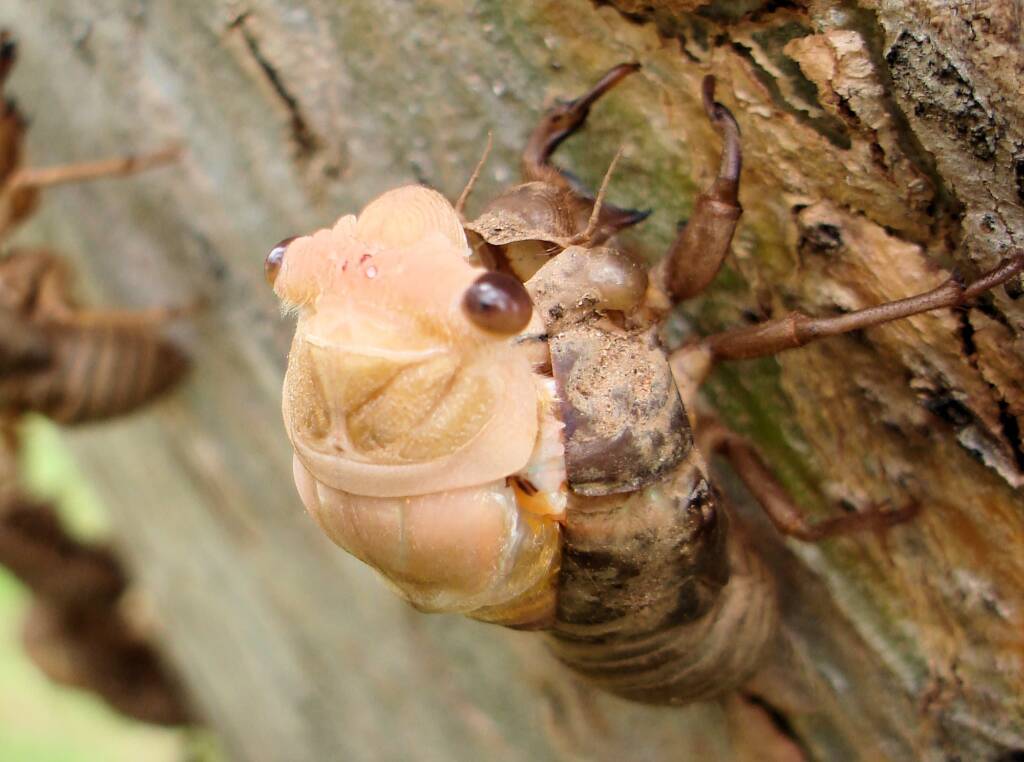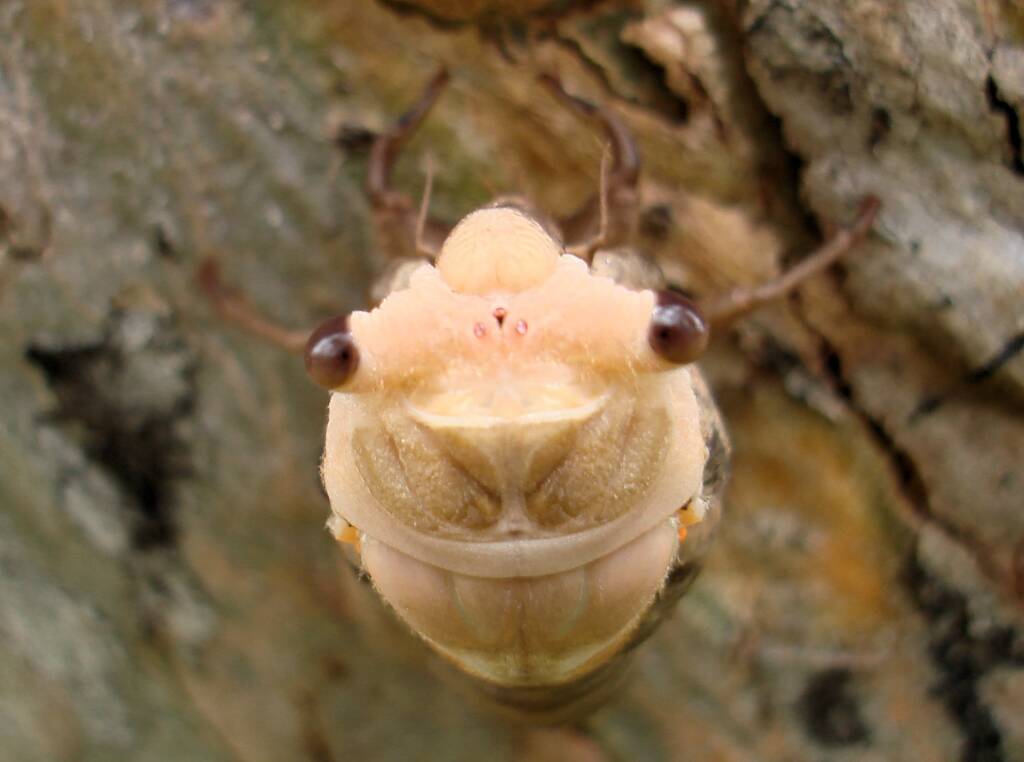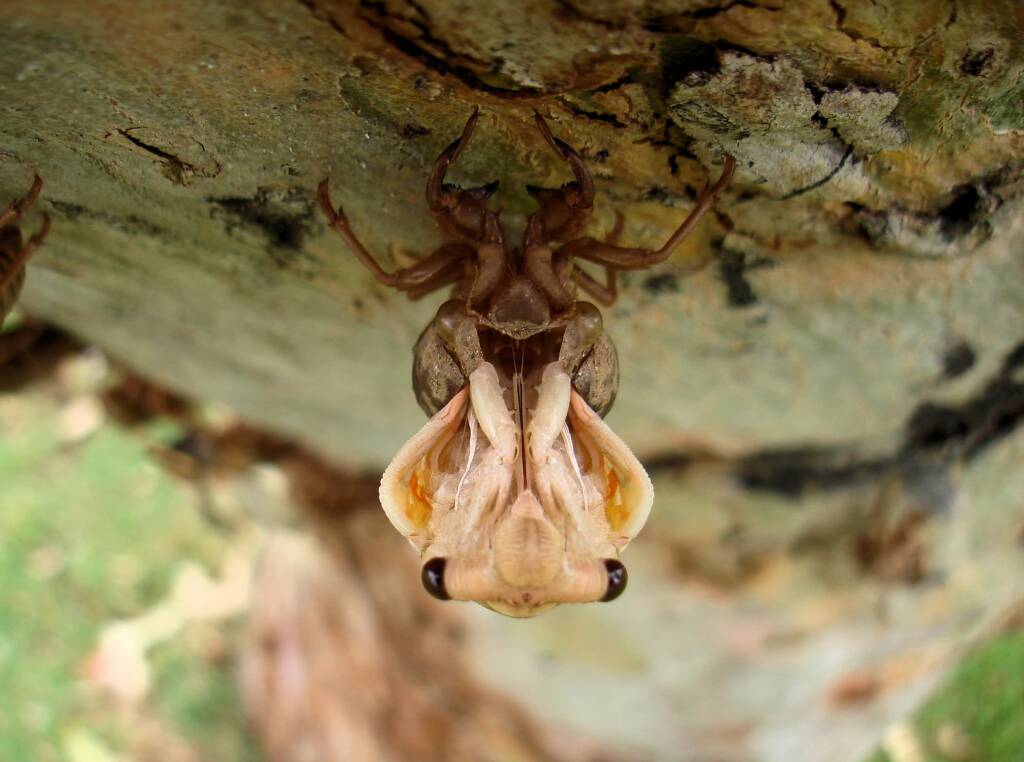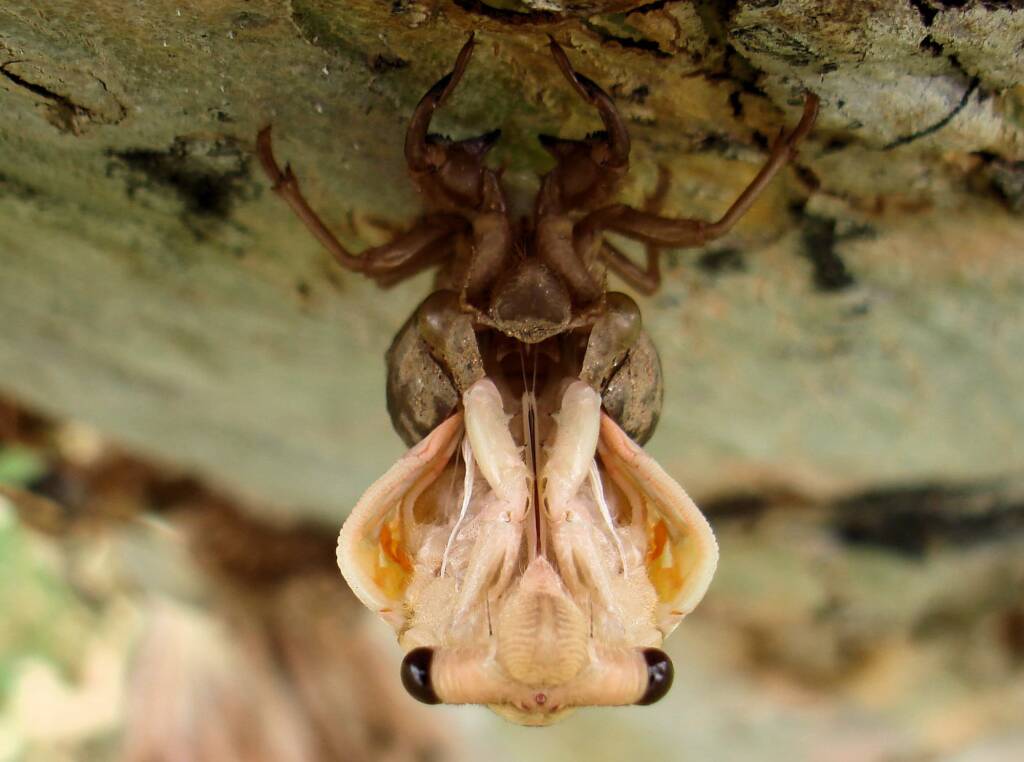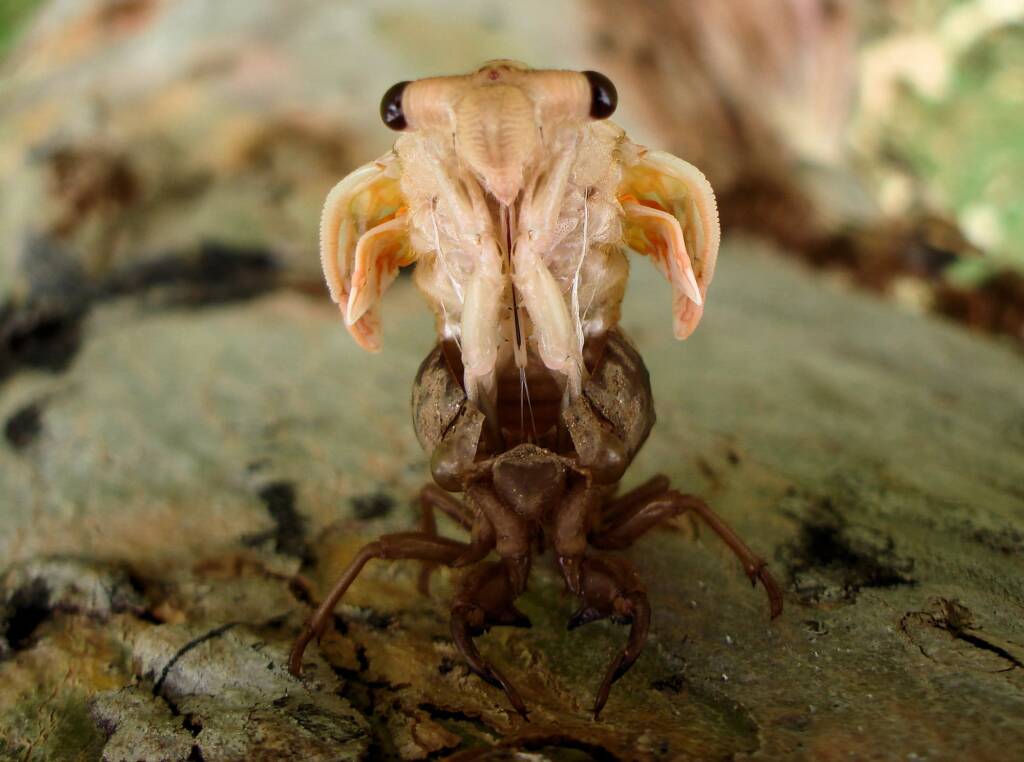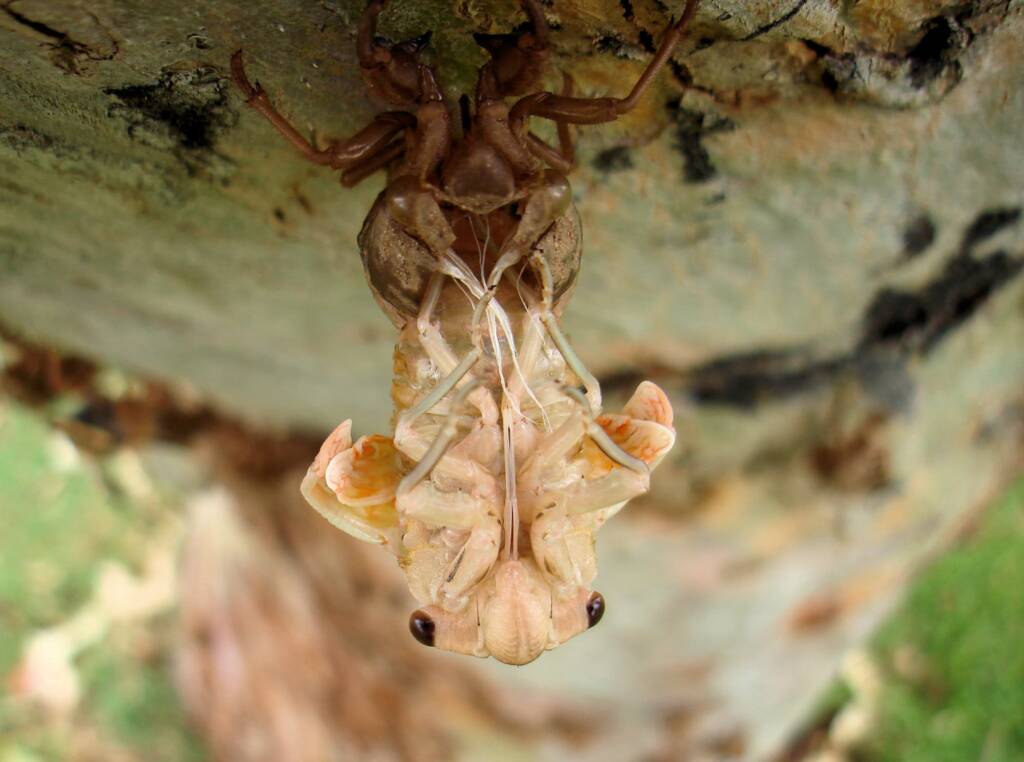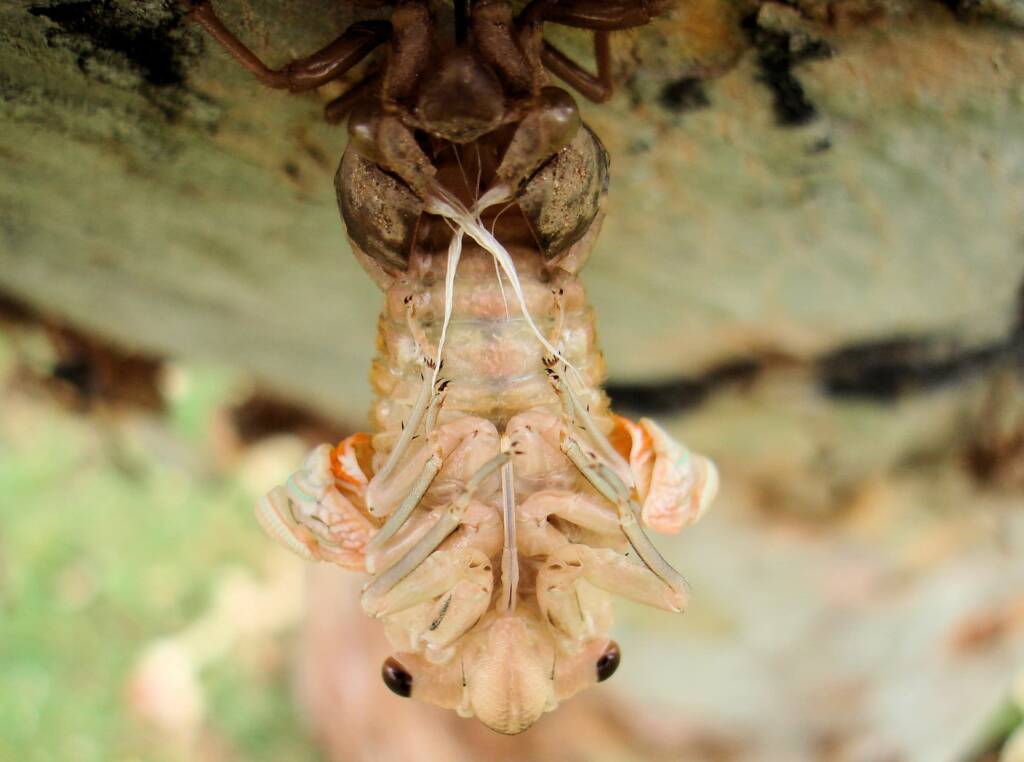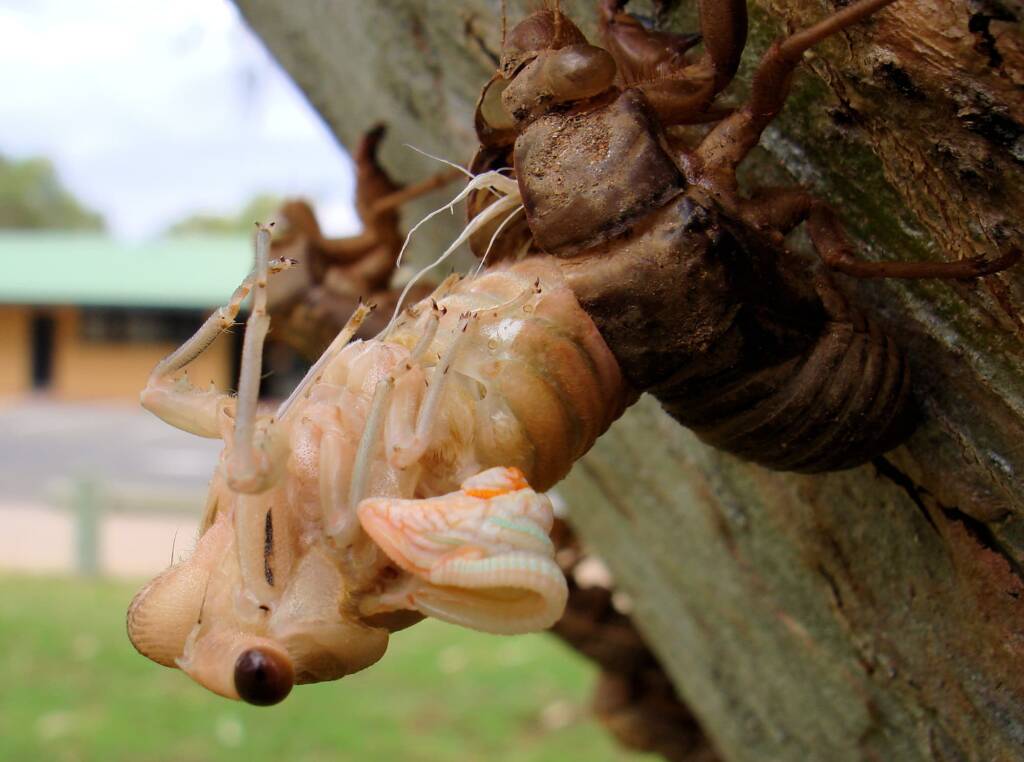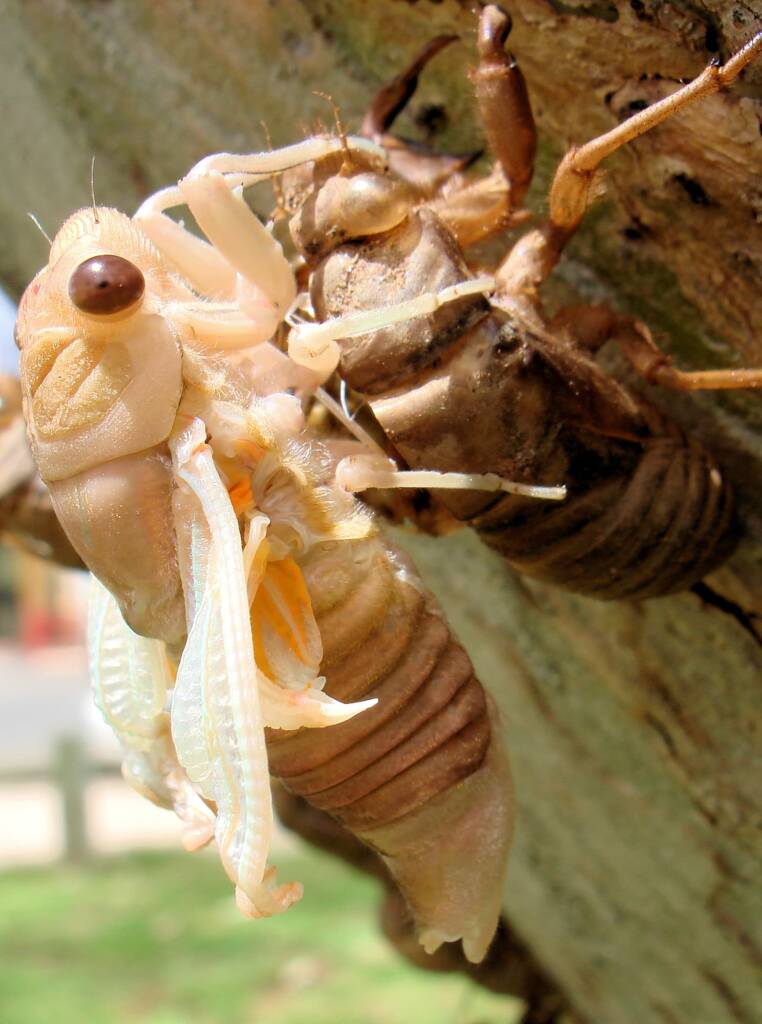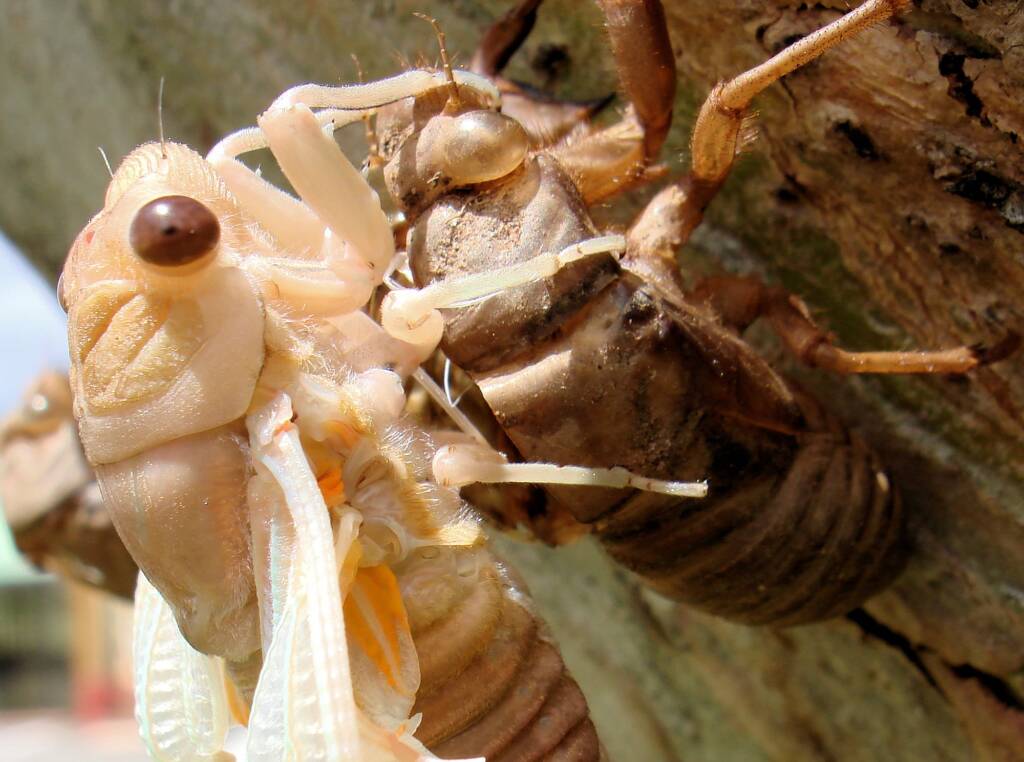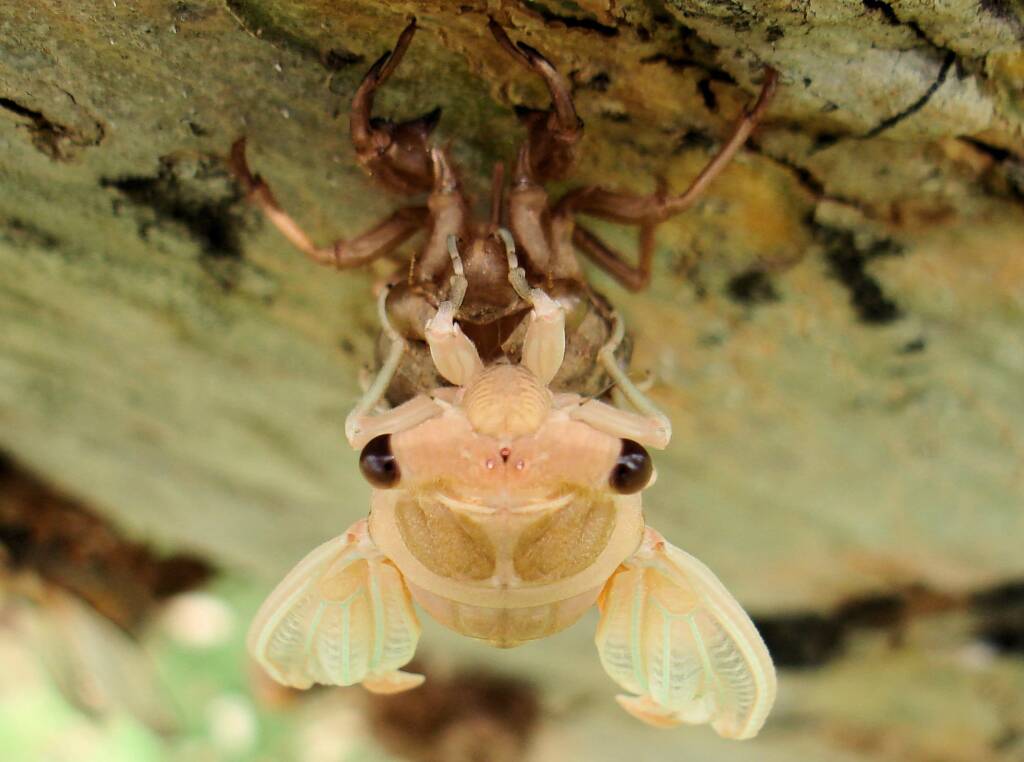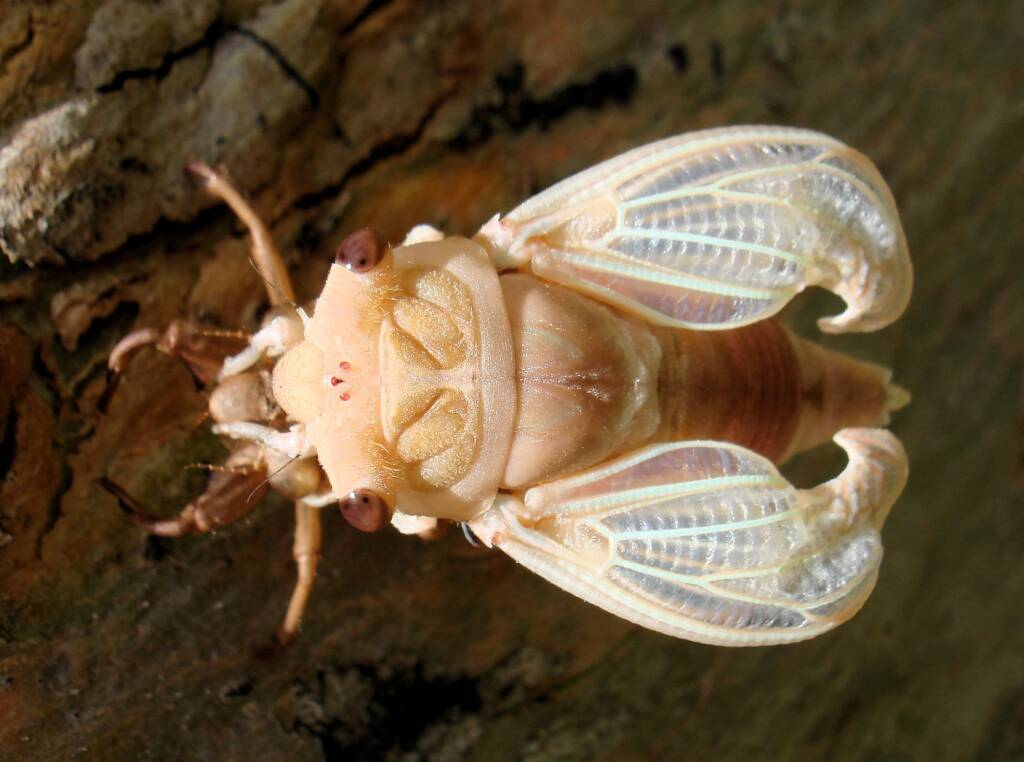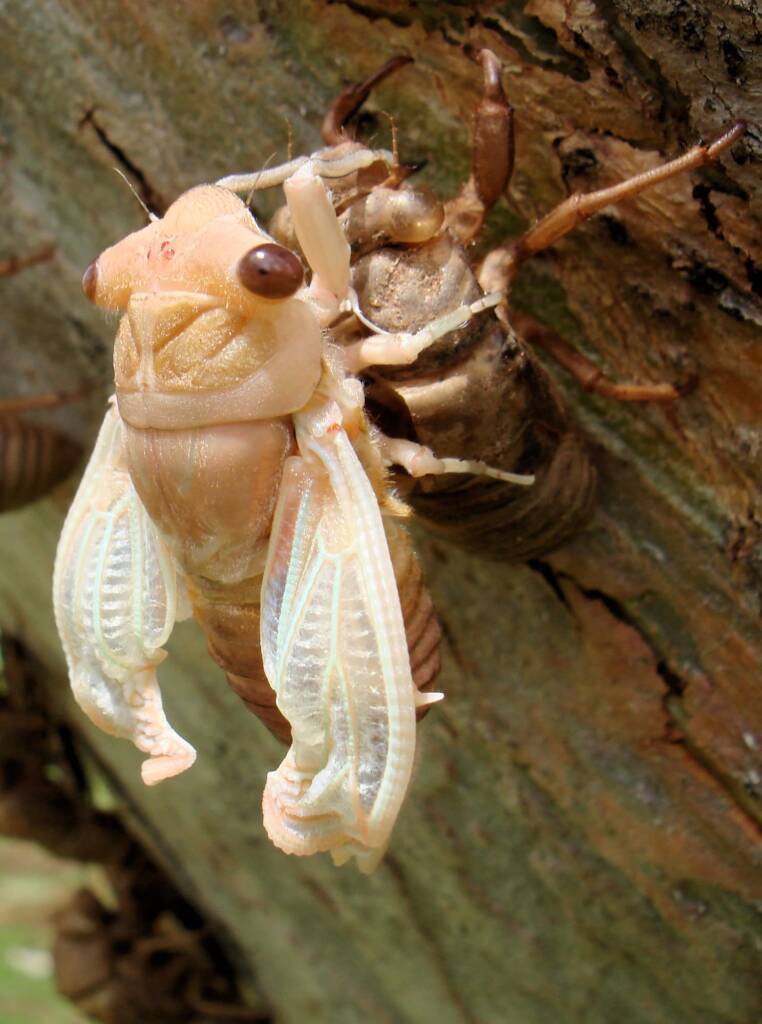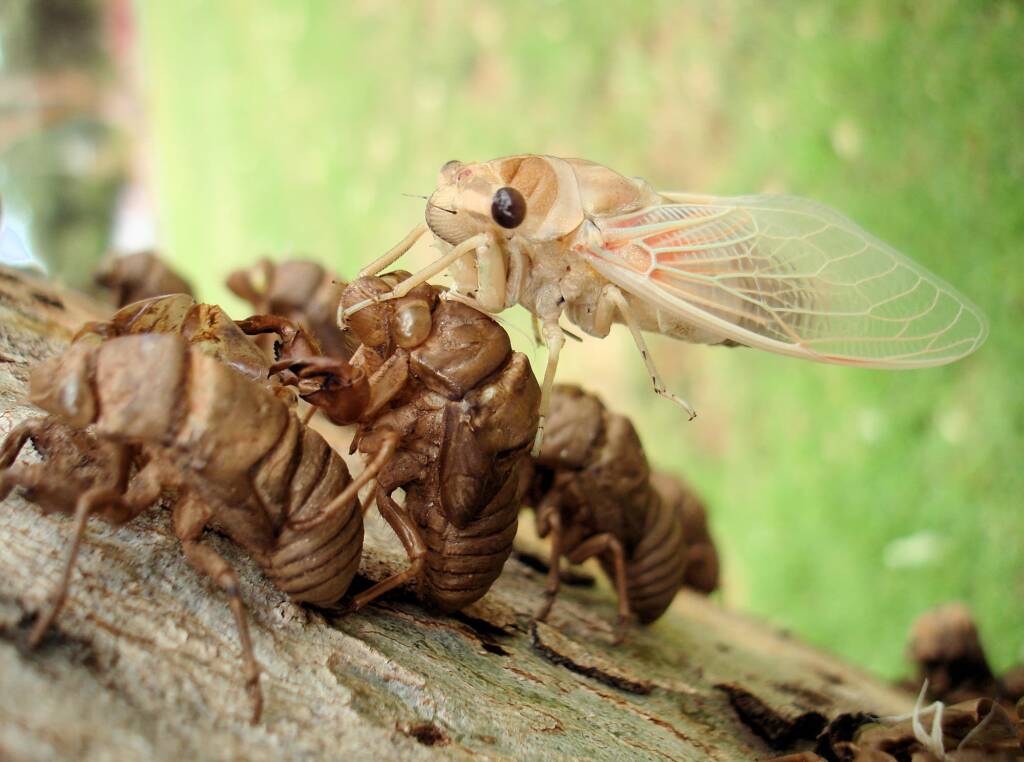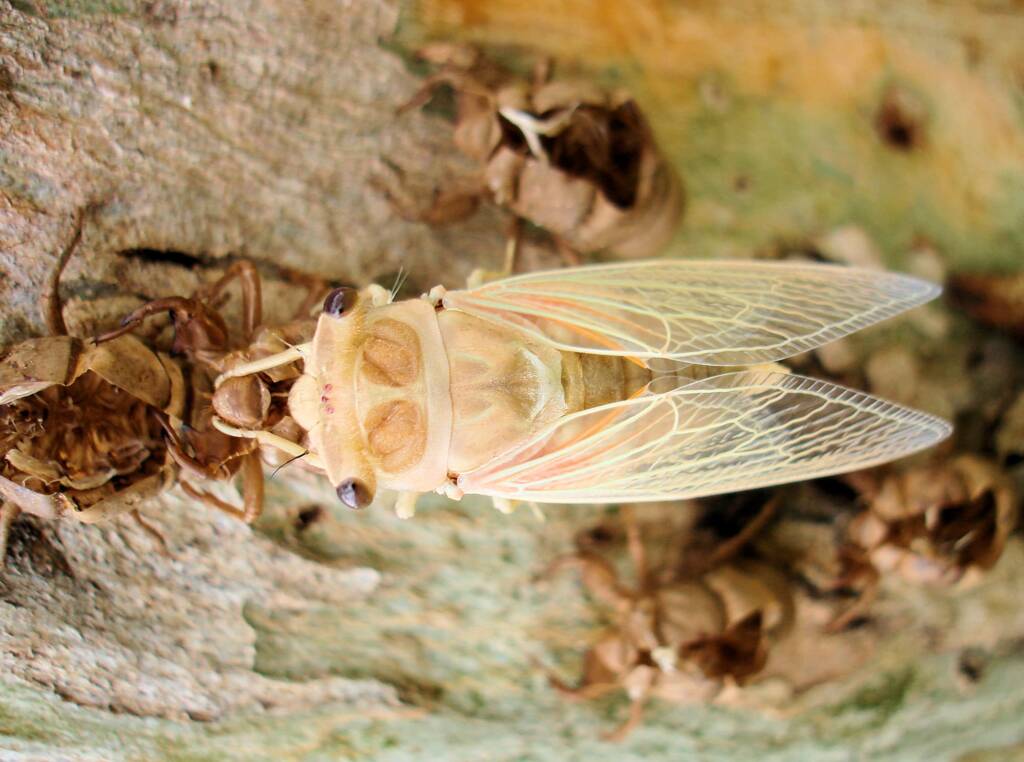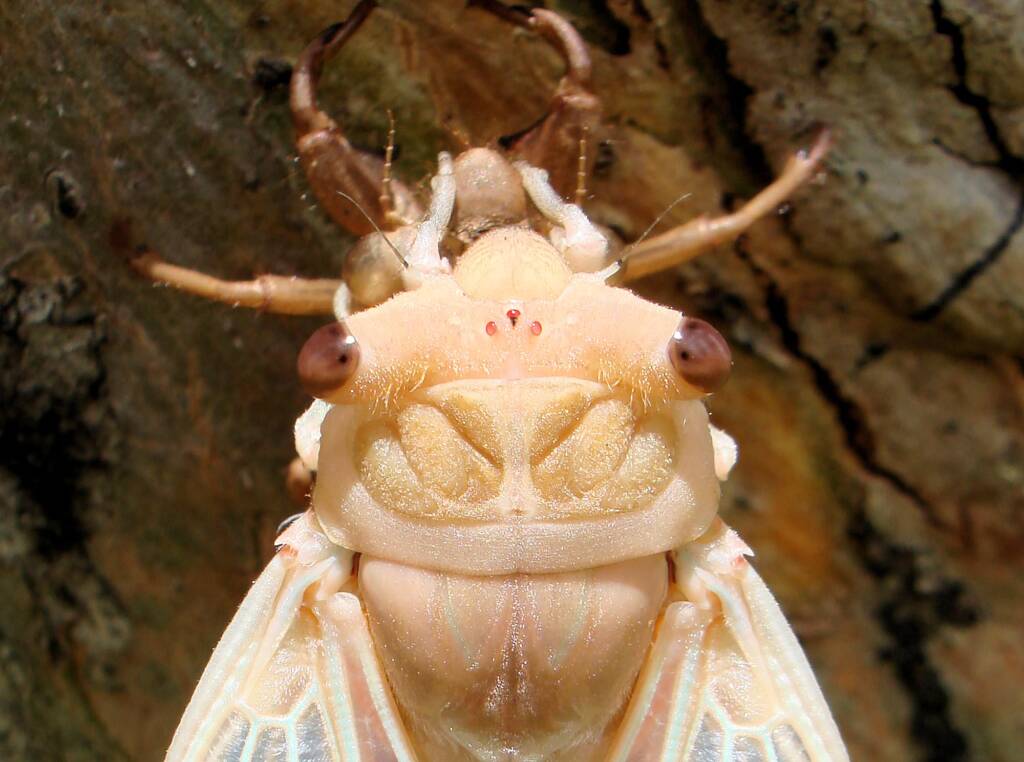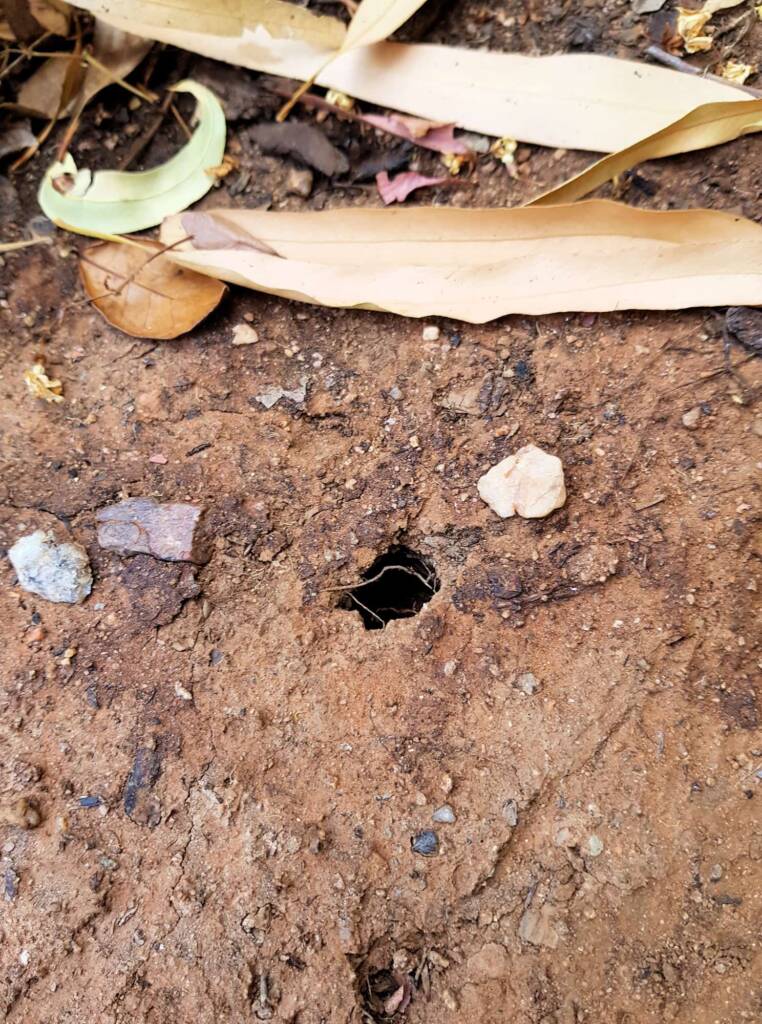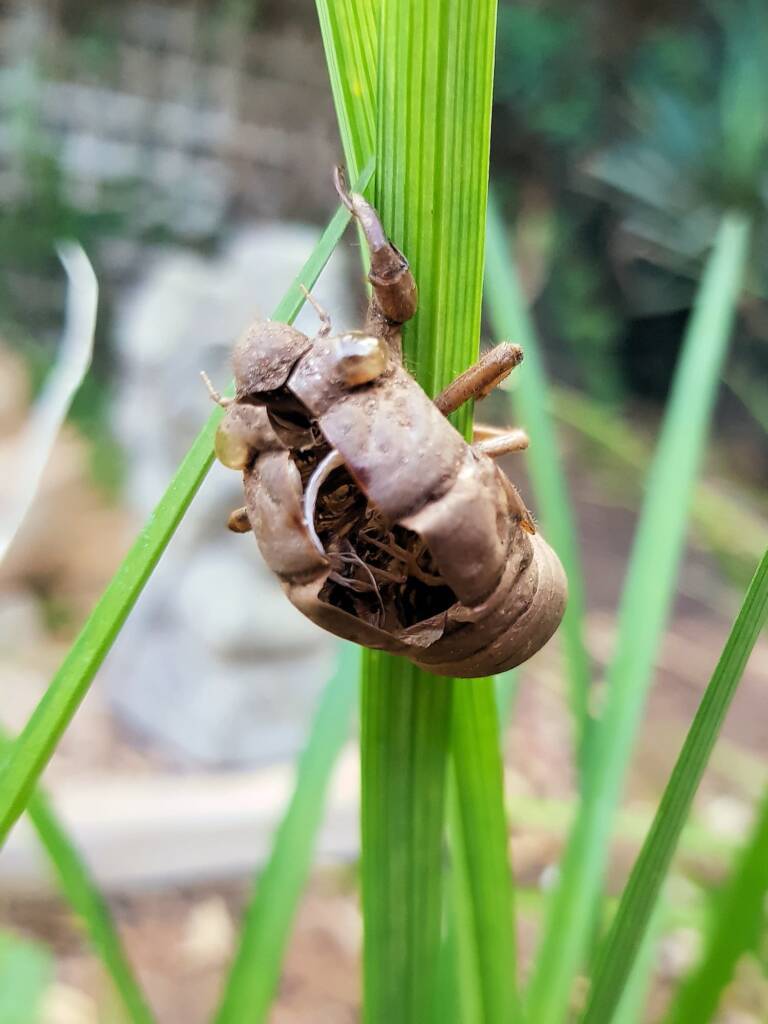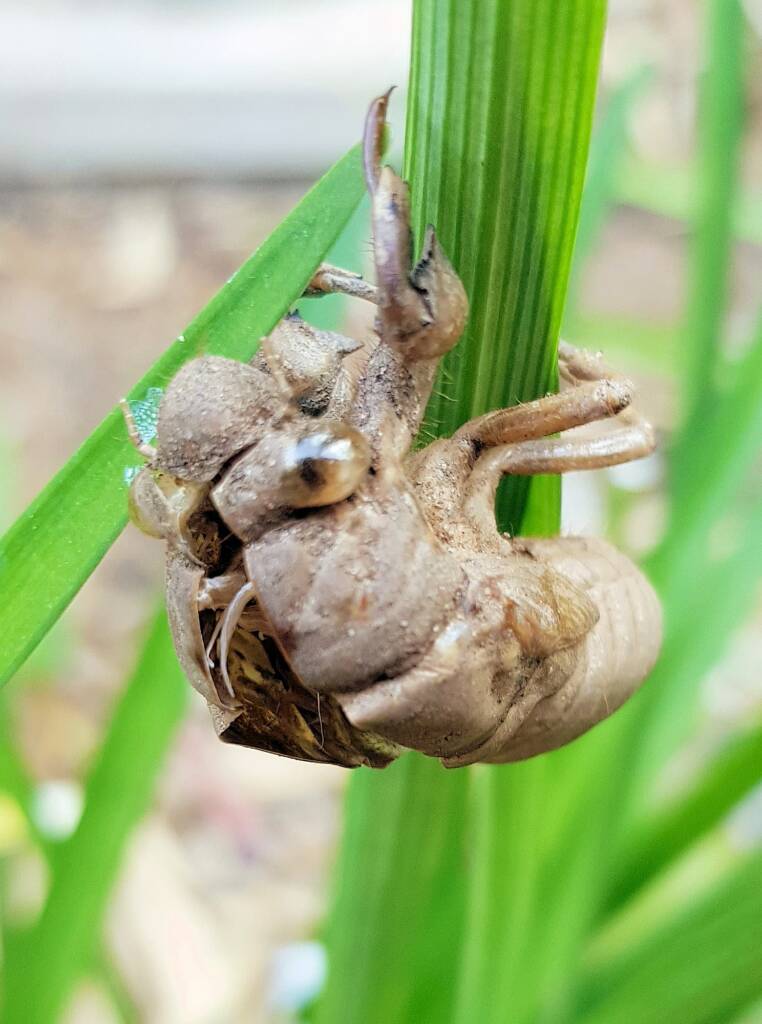CicadaDesert Screamer — Cicada Double Drummer — Cicada Masked Devil — Cicada Orange Drummer — Cicada
The cicada Orange Drummer (Thopha colorata), also known as the Golden Drummer, Big W, or just as the W Bug, is a large cicada that are endemic to Central Australia, usually restricted to the MacDonnell Ranges and associated regions.
There are five species that are recognised:
- Desert Double Dummer (Thopha emmotti)
- Double Drummer (Thopha saccata)
- Golden Drummer (Thopha colorata)
- Northern Double Drummer (Thopha sessiliba)
- Pilbara Double Dummer (Thopha hutchinsoni)
Like most cicadas, the Orange Drummer spend most of their life underground, with some suggestions that they live any where from 3 to 7 years, which explains why some adult cicadas are more abundant in certain seasons and not others, with peak appearance of the cicadas occurring every few years.
The life of the adult Orange Drummer cicada is very short, lasting only a few weeks and are usually seen from November to February. Whilst it is thought that the adult cicadas are exclusive to river red gums (Eucalyptus camaldulensis), they have been sighted on other eucalypts trees., especially along watercourses and garden areas.
It is the male cicada that sing, often singing in a chorus, to attract and mate with the female. The noise is made by vibrating the large drums on their sides. The different cicada species having their own distinctive sound.
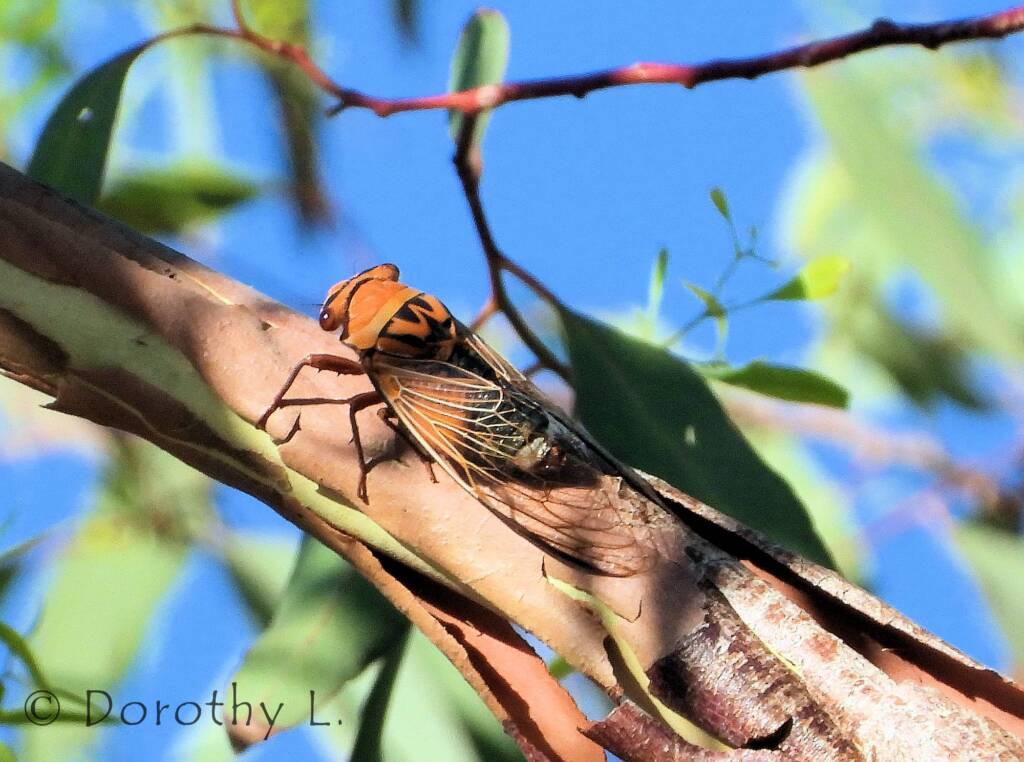
After mating, the adult female cicada lays its eggs by piercing the plant stems with its ovipositor (an egg-laying spike at the tip of the abdomen) and inserting the eggs into the slits it has made. The eggs then hatch into small wingless cicadas which are known as nymphs. These juvenile nymphs then fall to the ground and burrow below the surface where they live on the sap from plant roots. They live like this for a number of years, shedding their skin at intervals as they grow. The nymphs can often be found living on the roots of the River Red Gums.
When the nymph has reached full size it will dig its way to the surface with its specially adapted front legs. The nymph then climbs up on to a tree trunk or other nearby object to shed its skin for the last time.
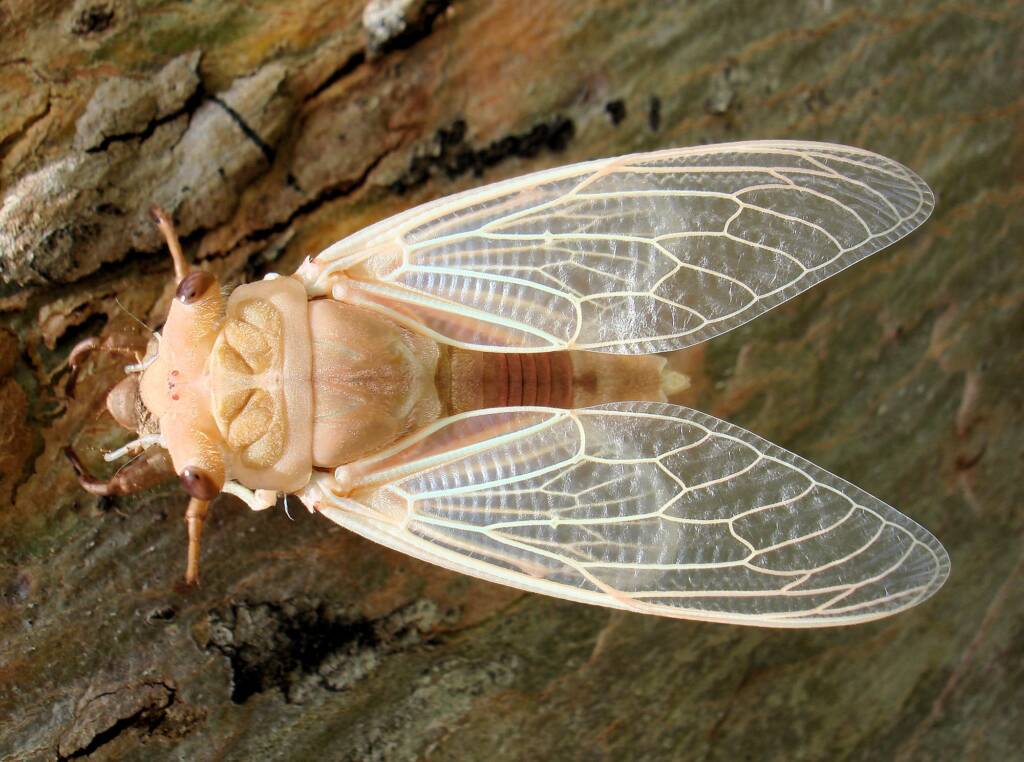
The nymph seem to freeze in place, and a spit appears lengthways down the back of the exoskeleton. From this split a head appears, pushing its way out of nymph shell. As it pushes it way out of the skin, the split gets wider. It eventually pulls itself out of the old skin casing, having emerged moist, soft, but complete. The wings become inflated with fluid and then harden into a lace-like transparent paper.
The empty nymph skin casing often remain hooked where the nymph had climbed prior to shedding their skin. Their casing sometimes remaining for months.
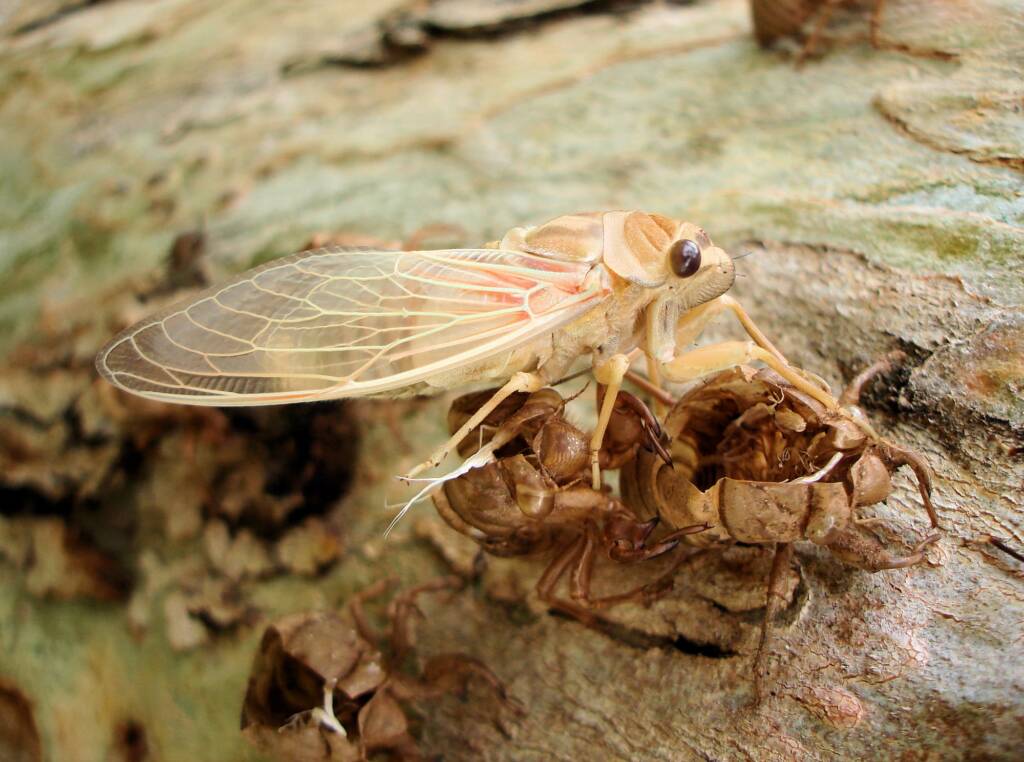
After a short time for rest, enabling their wings and outer exoskeleton to colour up and harden, the newly emerged adult cicada will spend the next couple of weeks eating, singing and hopefully having sex.
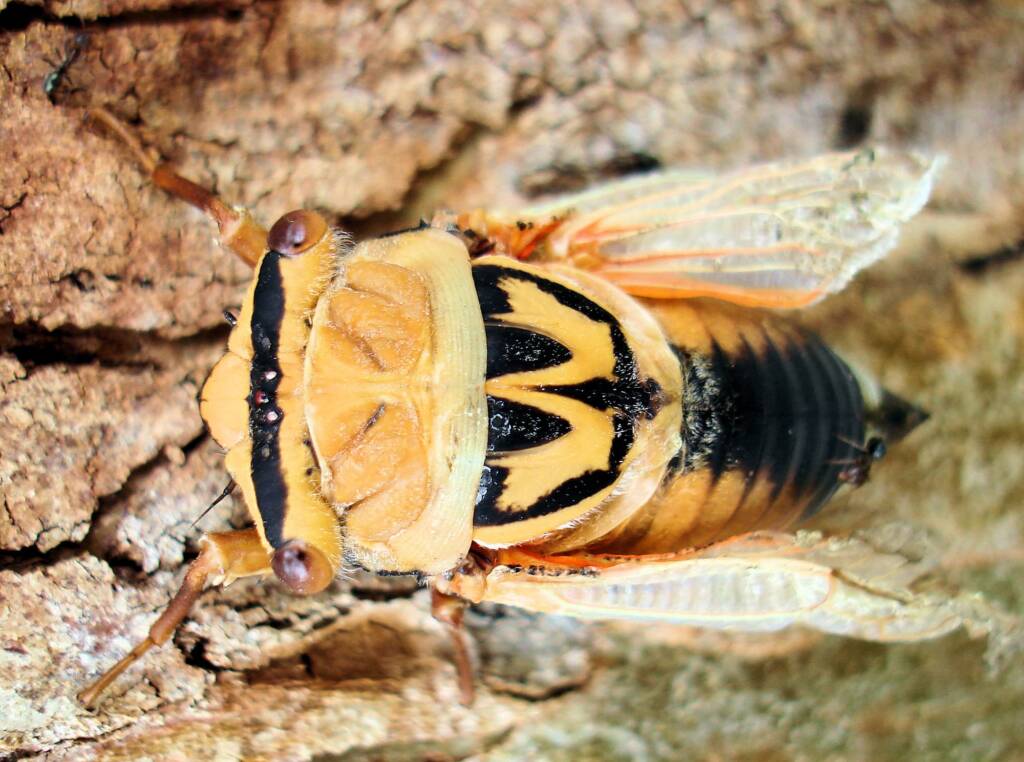
The fore-wing of the Orange Drummer measures approximately between 43-51 mm across.
Whilst the Orange Drummer is noticeably in Alice Springs and Tennant Creek, they have a distribution from Carnarvon to Dirk Hartog Island in Western Australia, to Central Australia, stretching from the South Australia border to Tennant Creek in the Northern Territory.
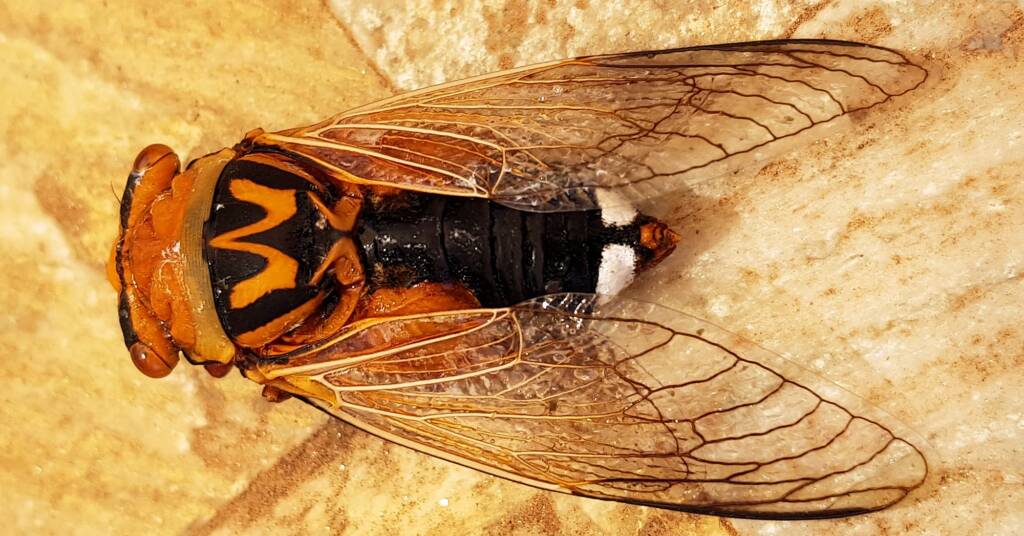
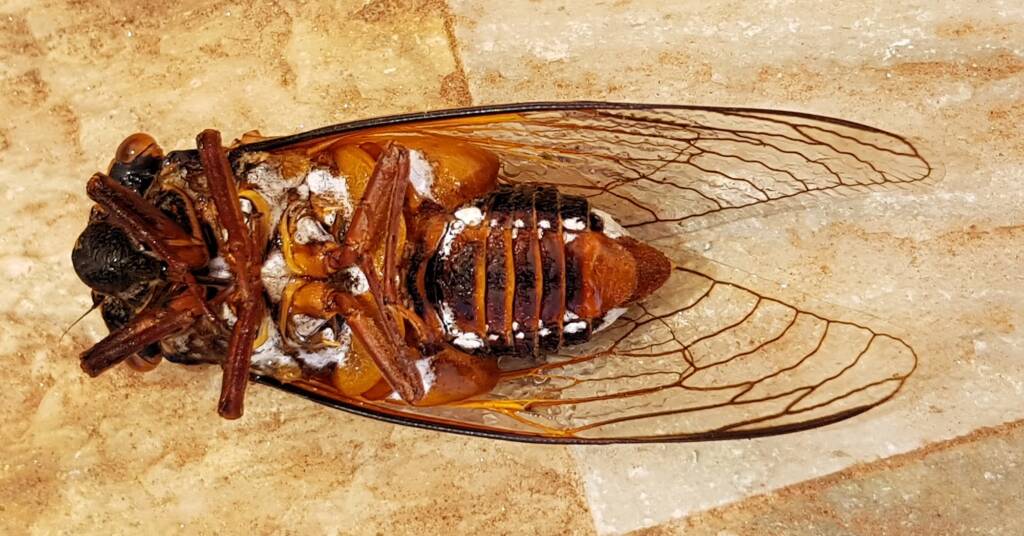
- Scientific classification
- Domain: Eukaryota
- Kingdom: Animalia
- Phylum: Arthropoda
- Class: Insecta
- Order: Hemiptera
- Family: Cicadidae
- Genus: Thopha
- Species: Thopha colorata
Footnote & References
- Australian Museum: Cicada – Superfamily Cicadoidea, Retrieved 21 October 2020, https://australian.museum/learn/animals/insects/cicadas-superfamily-cicadoidea/
- The Wonderful World of Insects: The Singing Cicadas, Retrieved 12 November 2019, https://www.earthlife.net/insects/cicadidae.html
CicadaDesert Screamer — Cicada Double Drummer — Cicada Masked Devil — Cicada Orange Drummer — Cicada
InsectsBees Beetles Blattodea Butterflies Coleoptera Cicada Crabronidae Diptera Dragonflies & Damselflies Formicidae Hemiptera Heteroptera (True Bugs) Mango Planthopper Moths Orthoptera Orthopteroid Processionary Caterpillar Stink Bugs, Shield Bugs and Allies Syrphidae Wasps Water Scorpion (Laccotrephes tristis) Witchetty Grub

